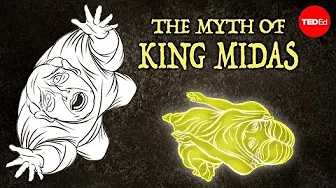Camus: The Myth of Sisyphus
Albert Camus was an early twentieth century French philosopher whose works expressed a philosophy of the absurd. In the Myth of Sisyphus, published in 1952, Camus challenges the idea of reason, logic and rationality, describing the limits of our understanding of the world as humans, protesting that philosophy itself is an almost useless and self-negating task. Camus is always asking that age old question – what is the meaning of life? Because if we knew the answer to that question we’d know how to act. The question of acting is an ethical question – what should we do? The traditional answers to these questions have, for millennia, come from religion. Religion tells us what we should do and why we should do it. We should not kill because we’ll go to heaven if we don’t. Answering these questions secularly without the aid of a higher celestial authority becomes more difficult. For Camus, in fact, it’s almost useless. How can we ever know what to do with any certainty when even the clearest questions have exceptions? For Camus, the absurdity of habit and the limits of any transcendental reason are illustrated by the image of Sisyphus – condemned by the gods to roll a rock to the top of a mountain every day, only for it to roll back down for him to repeat all over again. IN Sisyphus, Camus sees the human conditioned at its starkest. But he highlights the moment when Sisyphus returns back down to the bottom of the mountain towards the rock – it’s in this moment that he is most aware, and in an awareness of the truth everything becomes clear, we acknowledge our fate and return to it anyway. Acknowledging the problems of acting and acting anyway takes courage. Knowing that absolute truth is unavailable and being resolute anyway is a demand of being human. He writes that ‘all Sisyphus silent joy is contained therein. His fate belongs to him. His rock is his thing. Likewise, the absurd man, when he contemplates his torment, silences all the idols.’ We become most human – most free- when we acknowledge this. We must live with an awareness of this absurdity or risk falling into a numb and frozen immobility – our fate is to act without being sure of how to act The important thing, Camus writes ‘is not to be cured but to live with one’s ailments.’ Life is ‘unjust, incoherent and incomprehensible.’ We must live anyway. Then & Now is FAN-FUNDED! Support me on Patreon and pledge as little as $1 per video: http://patreon.com/user?u=3517018 Or send me a one-off tip of any amount and help me make more videos: https://www.paypal.com/cgi-bin/webscr?cmd=_s-xclick&hosted_button_id=JJ76W4CZ2A8J2 Buy on Amazon through this link to support the channel: https://amzn.to/2ykJe6L Follow me on: Facebook: http://fb.me/thethenandnow Instagram: https://www.instagram.com/thethenandnow/ Twitter: https://twitter.com/lewlewwaller Sources: Camus, Albert, The Myth of Sisyphus https://www.nytimes.com/2020/03/19/opinion/sunday/coronavirus-camus-plague.html https://www.nytimes.com/2020/03/21/us/coronavirus-medical-rationing.html https://qz.com/1821843/ethicists-agree-on-who-should-get-treated-first-for-coronavirus/ Aronson, Ronald, "Albert Camus", The Stanford Encyclopedia of Philosophy (Summer 2017 Edition), Edward N. Zalta (ed.), https://plato.stanford.edu/archives/sum2017/entries/camus/ AMA Journal of Ethics, January 2020, 22, 1, Culture, Context, and Epidemic Contrainment, https://journalofethics.ama-assn.org/issue/culture-context-and-epidemic-containment



![Minecraft 1.17 The New Blocks Of The Caves & Cliffs Update [Minecraft Myth Busting 130]](https://img.long.tv/short/2023/12/3rOROUBTbX4.jpg)


![The Best Way To Find Diamonds In Minecraft 1.18 [Minecraft Myth Busting 133]](https://img.long.tv/short/2023/12/Eea60GRjjxQ.jpg)


![Myth VS Seoul [1v1 Top 8] // Stance // Smoked in Ohio 6](https://img.long.tv/short/2023/12/xuLs2S3gYdg.jpg)










